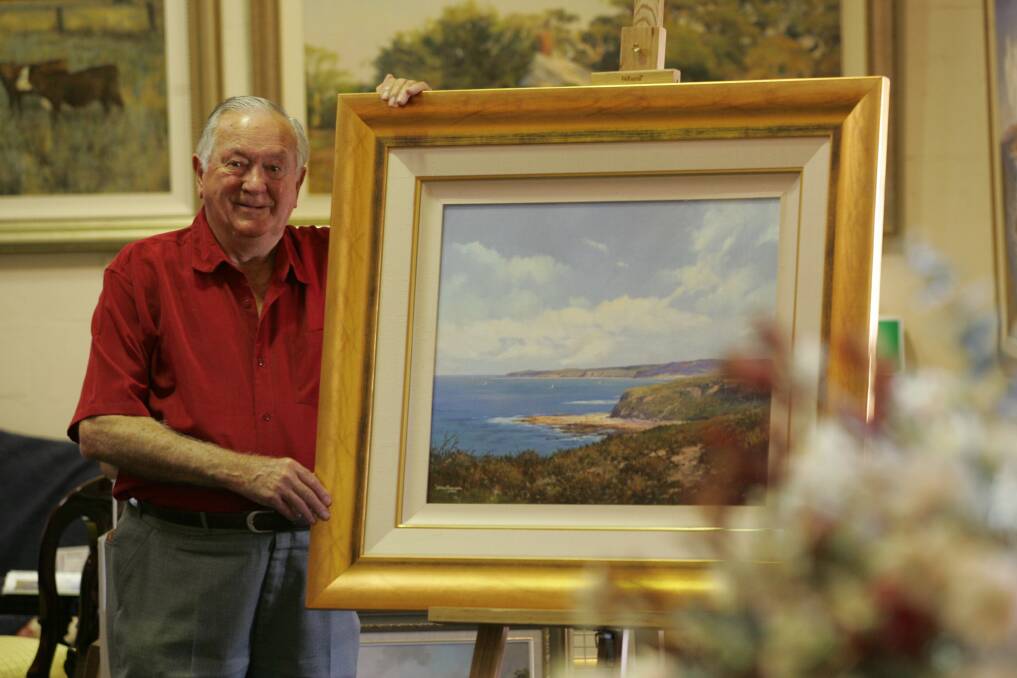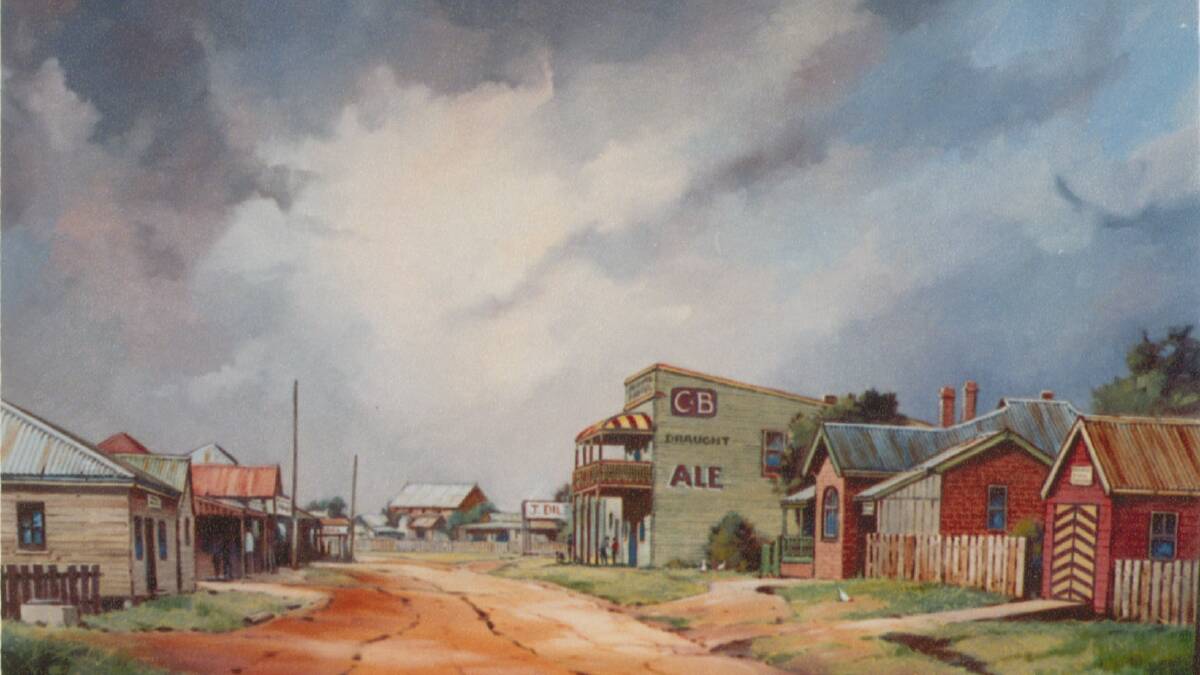
TALENTED artists are often discovered when they’re very young, but not usually by the local funeral director.
Subscribe now for unlimited access.
or signup to continue reading
Bill Freeman was a teenager and had been teaching himself to paint landscapes on the Minmi property that generations of his family had called home when an undertaker in Wallsend saw the young artist’s work.
The businessman offered to have his cabinetmakers, who usually built coffins, to knock up some picture frames, and for young Bill’s paintings to be displayed in the front windows.
“They all sold, 30 shillings each,” Mr Freeman told me in 2006. “I thought it was wonderful that people wanted my paintings.”
From that first exhibition in a funeral home, Bill Freeman’s paintings would find their way into many homes around the Hunter and beyond. His bush scenes and seascapes, which often portrayed his favourite fishing spots, were keenly sought after.
Yet perhaps his most popular pictures were his loving depictions of the rusting and rotting old buildings in the faded mining town where he was born, lived and painted. What time was taking away from Minmi, Bill Freeman preserved in his pictures.
“The more they were falling down, the better he liked them,” said Dawn Freeman, his wife of almost 68 years. “He used to say that old places had character, because they told the story about all the hardships that went on when they were built.”
But now time has taken William Freeman away. He died this week, aged 88.
“He was a legend to the older people around here, someone everyone looked up to,” said Bob Skelton, better known as bush poet and storyteller “The Minmi Magster”.
“He helped put Minmi on the map.”
William Freeman was born on 16th June, 1929. He attended Minmi Public School, where, many years later, he would paint a mural of the town as it used to be.
His first job was working with his father as a timber-getter. Bill Freeman loved the bush, but his passion was to depict it with his brushes and paints. Mr Freeman’s father wasn’t keen on his son pursuing art. So Bill had a job at a clothing factory in Newcastle, working alongside his future wife. They married in 1950.
Bill Freeman was working all day then painting late into the night, filling commissions as demand for his art grew. When he was about 23, Bill and Dawn made a life-changing decision; she would work in a salaried job, and he would paint. He kept painting for the next 65 years.
“He painted from when he got out of bed until he went to bed,” Mrs Freeman said.
Bill Freeman was largely self-taught but was given lessons and tips by one of Australia’s greatest painters, William Dobell, who lived at Wangi Wangi.
“I took out some landscapes, and he [Dobell] said, ‘You’ve got potential, mate’,” Mr Freeman recalled.
He revealed it was “old Bill” who advised him to include what would become a hallmark of a Freeman painting – chooks, and always an odd number.
“He said, ‘If you make them even, the composition doesn’t look right’,” Mr Freeman said of Dobell’s advice. “He said nature was not even.”

Bill Freeman held a number of highly successful solo exhibitions at Morpeth Gallery and participated in its group shows. Gallery manager Kylie Richards said Bill Freeman was not only a popular artist but a beautiful human being.
“He’d mentor a lot of artists,” she said. “He was very giving. He wasn’t secretive about his painting.
“We’ve lost an absolute gentleman, and an icon of the Hunter.”
Dawn Freeman noted art buyers would often return time and again to buy Bill’s paintings, and the artist viewed them not as clients but friends.
Many of those friends, along with Dawn and the Freemans’ two children and four grandchildren, will farewell Bill at a service on Tuesday. Just as the artist’s work was first exhibited at a Wallsend funeral home, his life will be honoured at Pettigrew Family Funerals’ chapel in Wallsend at 2.30pm.
Bob Skelton is planning his own tribute, writing a poem in his mate’s memory.
“It won’t be hard,” Mr Skelton said, “because there are so many good things to say about Bill.”

